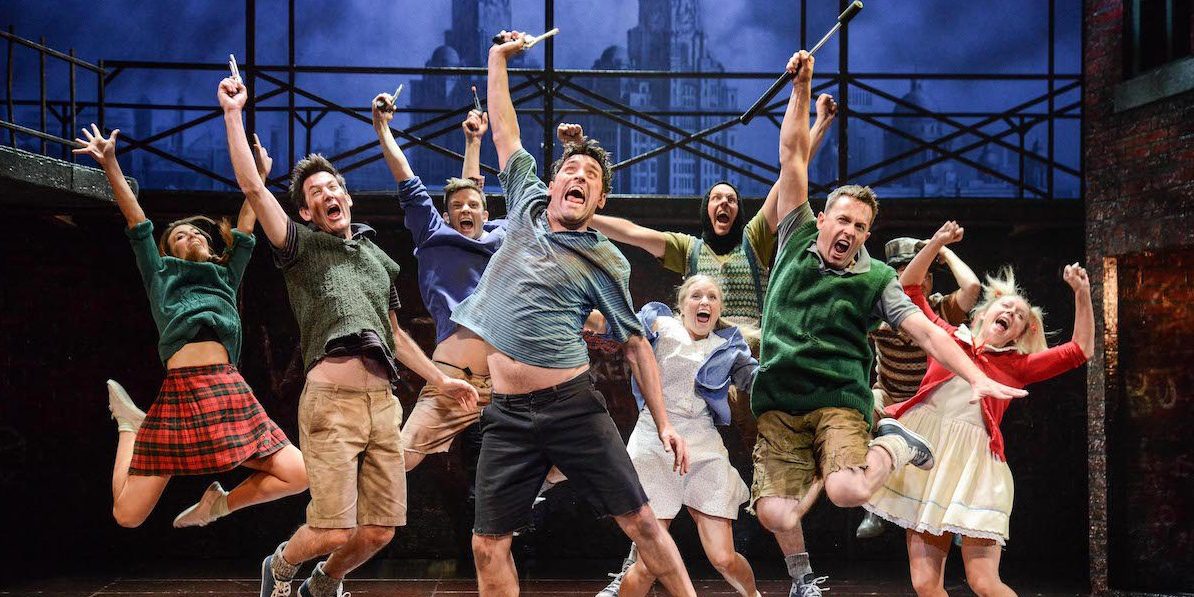Who can remember Blue Remembered Hills, the BBC ‘Play for Today’ by Dennis Potter, broadcast in 1979? It was about a gaggle of seven-year-olds roaming the Forest of Dean, all played by adults. The juxtaposition of childish behaviour and adult themes was both surprising and effective. Willy Russell had a similar idea when he came up with Blood Brothers in 1981, and in a lengthier version, it had a record-breaking run in the West End, with regular revivals ever since. It has won accolades such as “One of the best musicals ever written” and “Brings the audience cheering to its feet and roaring its approval.” That is certainly what the audience did last night.
The two central characters first strike up a friendship when they are in short trousers, before even starting primary school, and we follow their relationship through their teenage years, their separation as adults, their unexpected coming together again, and the tragic consequence of their love for the same woman, also a former classmate. Their childhood playmates also grow older with them. Again, the trope of adults playing children is startling and effective.
An even older motif, going back through Shakespeare to Menander and the Greek ‘New Comedy’, is the mix up between twins. Here the boyhood pals Mickey and Eddie swear eternal friendship as ‘blood brothers’, not suspecting that they are indeed related by blood. They are twins, but one of them was given away by their impoverished working-class mother, who already had a brood of children on her hands, to be brought up by a wealthy couple who were childless. Both the natural mother and the ‘surrogate’ mother try to keep this a secret, but like most secrets, it comes out in the end.
Another central theme is the perennial preoccupation of the English, the class divide. Mickey lives with his Mum and bevvy of siblings in a terraced house in a working-class area of Liverpool, and in due course goes to work in a factory, while Eddie lives in a mansion on the other side of the park (Sefton Park?) and goes to a public school, then to Oxford. The two homes are cleverly positioned on opposite sides of the stage. Yet other themes are explored, such as addiction to the anti-depressant drugs prescribed to alleviate clinical depression.
Having read this analysis, the reader may be wondering what brought the audience cheering to their feet. Unlike many musicals, this one does not rely on spectacular choreography or extravagant set-piece numbers, nor does it have a happy ending. But it has bags of atmosphere. The design, the lighting and the sound are deservedly given top billing along with the director. The songs are really good, and boy, are they well sung by the cast, backed up as ever by an excellent band! The sights and sounds of the Fifties, Sixties and early Seventies are faithfully recreated, and there some real surprises. When two uniformed policemen pulled aside the curtain that had been drawn across one of the entrances to the auditorium, I thought they were either latecomers or they had come to arrest someone in the audience. They had not.
While the acting was uniformly great, my favourite character was the Narrator, a sardonic and somewhat sinister éminence grise who comments upon the action and hints at dark forces being at work, with his allusions to shoes on the table, single magpies and other superstitious harbingers of ills to come. Altogether, this musical is riveting stuf

